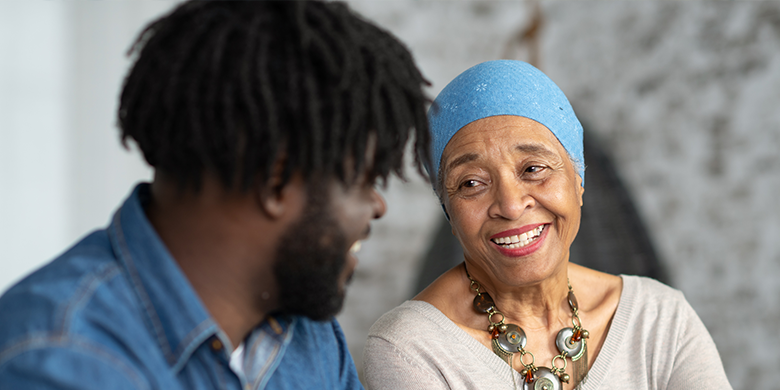Why a cancer support system is an important part of a treatment plan
- Category: Cancer Care, Stress Management, Support Services, Supportive Care, Oncology
- Posted On:

When you think about cancer treatment, therapies to remove the cancer from the body probably come to mind. Cancer, however, doesn’t just cause physical symptoms. It also has emotional impacts, making it important for patients to have a support system.
People with cancer need emotional support at every stage of their journey, helping them to stay as physically, mentally and emotionally healthy as possible. A support system made up of family and friends can make all the difference. Read on as our Touro cancer care team shares some perspective.
The role of emotional support
Cancer patients deal with a wide range of symptoms, along with side effects from treatment. Many of those symptoms and side effects are physical in nature, but not all of them.
Simply receiving a cancer diagnosis can wreak havoc on a person’s mental health and emotional health. Regardless of the type of cancer a person is experiencing, he or she is likely to run the gamut of emotions.
It’s not uncommon to feel sad, guilty or angry. Someone who is going through cancer treatment may question why it’s happened to them—a question that’s really without a good answer.
Anyone who’s ever faced an emotionally challenging time knows the value of having someone by your side. For cancer patients, the benefits of emotional support go beyond that.
Research shows that having a support system in place benefits cancer patients in multiple ways. For one, being supported by family and friends may help a cancer patient feel less socially isolated, which can be a health hazard in and of itself.
Having a strong network of support can also help patients wade through complex emotions, providing a sounding board and a listening ear. Some research has even shown that cancer outcomes may be improved when a cancer patient has abundant social support.
This is true for support systems of any kind, including having family members and friends providing emotional support, and having access to what’s known as “peer support” through support groups involving others who have cancer.
How to support someone who has cancer
While the thought of dealing with cancer may seem scary to you, even from an outsider’s perspective, know that your support is invaluable. Supporting a loved one with cancer starts with providing overall support.
Receiving a cancer diagnosis and beginning treatment can quickly feel overwhelming for the patient. In the initial stages after diagnosis and as time goes on, do your best to calm the chaos. Seek out opportunities to make things easier, whether that’s by accompanying the person to treatment or keeping the house clean.
Be sensitive to the various emotions someone with cancer might face—sometimes even in the span of only minutes. The best thing you can do to help someone facing those emotions is to be a calm presence, offering comfort and reassurance.
If your loved one is religious or spiritual, encourage him or her to attend services whenever possible. When in-person services aren’t doable, seek out options available online.
While there’s a great deal of emotional support you can provide on your own, it’s also important for cancer patients to interact and engage with others who are also facing cancer. Suggest that your loved one join a support group to gain a larger network of those facing similar challenges, including those with the same type of cancer.
You may also find it beneficial to join a support group of your own, allowing you to talk through your experiences with others who are caring for those who have cancer.
Ultimately, when it comes to providing emotional support for someone who has cancer, the best thing you can do is simply be present. You’re benefiting your loved one in ways small and large.
Undergoing cancer treatment? Learn more about the cancer support services Touro offers for both patients and their loved ones.


